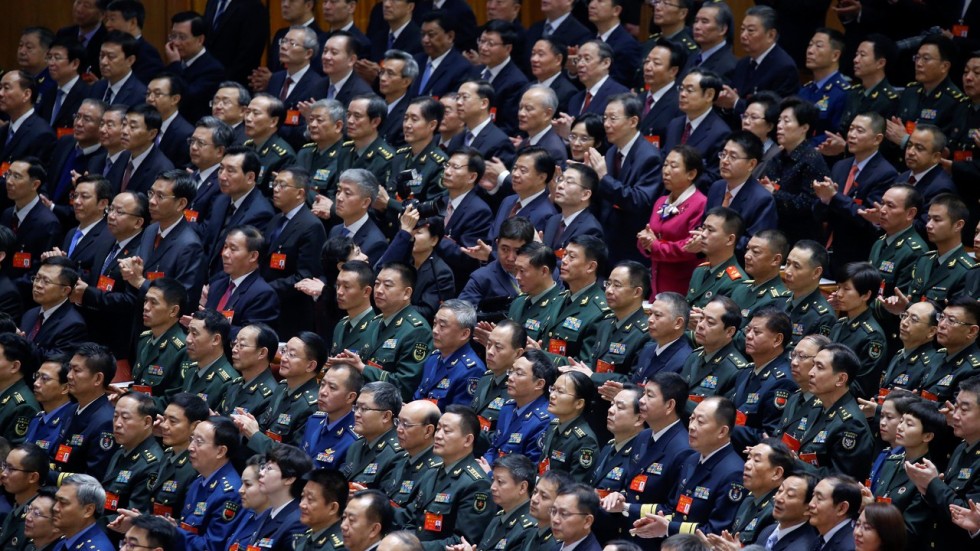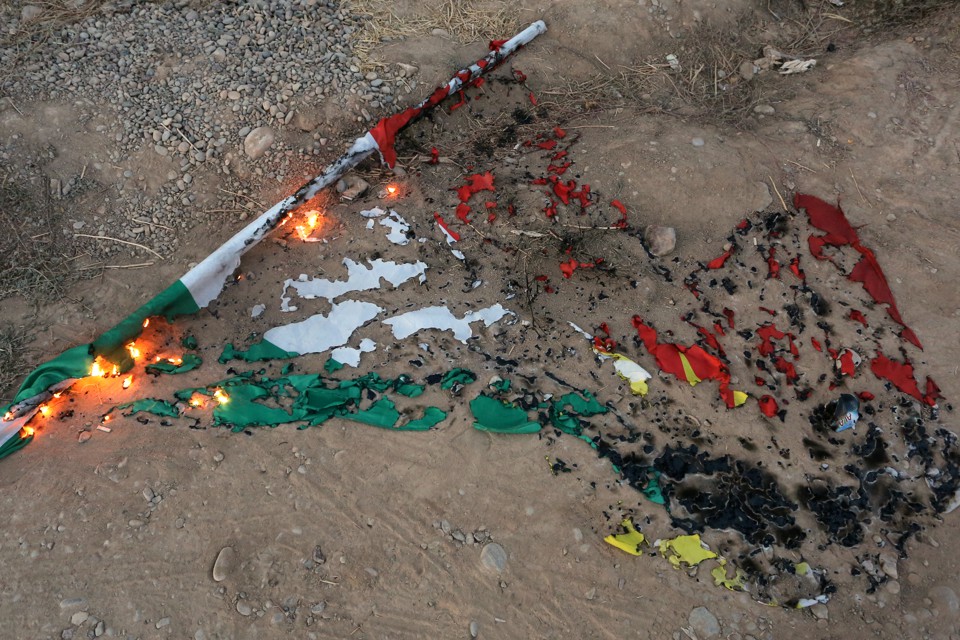For the last three days I have discussed the Emerging Futuristic Technological Trends and its Implications on International Security. Today I shall dwell upon Military Implications of Emerging Technologies.
In the civilian world it is clear that the fourth industrial revolution is upon us. Previous industrial revolutions, led by technological inventions such as the steam engine, mechanisation and computers, all took decades or even centuries to develop and realise. But the fourth industrial revolution is unique in its speed and scale, in that a whole range of emerging technologies – cyber, artificial intelligence (AI), data analytics, robotics – they are all being developed, iterated and improved on all in the space of a few years. The resultant impact and disruption will be enormous.
The emerging technologies of the fourth industrial revolution will also have an impact on the military. Just as the third industrial revolution of computers in the 1980s and 1990s led to a revolution in military affairs, with concepts such as network centric warfare and precision strike, with the fourth industrial revolution we are on the cusp of another revolution in military affairs, one that will leverage on cyber, AI, big data and robotics. While the full implications of this revolution are still unclear, we are beginning to see how we can apply these new technologies in defence.
Emerging technologies have the potential to be game-changers – game-changers in changing the balance of power, military doctrine, the character of conflict and the way people and nations fight. However, a considerable degree of uncertainty exists about the promised utility of some of these technologies, about the timelines involved until they might become available and the cost that will be incurred in integrating them into the armed forces.
Major Implications
Technology is now evolving far faster than the military procurement process. We need to change our process or we are going to fall behind in the use of technology as applied to conflicts. We need to understand how to embrace technology. Most of the innovation occurs in the private sector, not in government. That means that defence and intelligence communities have to be better customers and better partners with private industry. If we make it too difficult, too bureaucratic, too rigid to deal with government, more and more companies will simply say, ‘I do not need that. I will just deal with the commercial market and avoid the hassle’. Armed forces will not be able to utilise these innovations, at least in the early stages. If technology is changing that quickly and we do not have the processes to adapt at that rate, we will inevitably be fielding technology that is out of date at the time it is fielded. We have to adjust our processes and organisations to reflect that pace of change.
Armed forces have to change the decision making process to reflect change on that pace. We have to be able to recognise a new technology for good or ill and adjust quickly. We do not have the luxury of studying for years. It is not the acquisition process that has to be adjusted; it is the whole decision making process that must operate at the pace of change. The technologies, the methods, the processes, the decision-making must keep up with a pace of change, but there are some fundamental principles which have benefited us all that we need to make sure are continued even though the methods are different than they have been in the past.
Everyday technology can be turned to malevolent use. There is a need to think about the evolution of everyday objects into things which will do us harm.
The balance between the high cost of procurement and the high cost of equipment and the low cost of being able to turn everyday objects or indeed older weapons to use, has been brought out amply clearly in some recent campaigns. Highly sophisticated, expensive missiles were being used to defeat snipers. The cost equation balance is extremely disadvantageous to state actors as it is in many other sub-state conflicts.
The skills necessary and the processes by which human skills are employed in the militaries has to change. .As technology advances, it becomes more complex and it requires people with a technical background or engineering background to understand the complexity of it. However, these people are typically more enamoured with the technology itself rather than the policy issues. Then conversely, on the other side, the people who are dealing with the policy, whenever you start speaking anything that is remotely technical, their eyes begin to glaze over. It is for the policy people to come and get their hands dirty and understand the technology, because the technology is going to affect policy decision making at the high operational and the strategic level and we cannot make these kinds of policy level decisions, unless we understand the technology and what it begins to mean to us.
With the development of motion learning, deep learning, big data, cloud computing and the Internet of Things (IoT), AI is resting at the centre of the coming technological, industrial and military revolution. AI has been widely used in embedded fields. Intelligent sensors and wearable equipment may help improve information collection and sharing. Cloud computing and big-data analysis can be used in cyber detection and attribution. More than 70 countries have the ability to develop unmanned vehicles, drones and ships, and the robot warriors will be in service maybe in the near future. AI will make war more precise, more cruel and the strike action quicker. The unmanned system will be used by states to reduce their military priorities. But the civilian collective priorities may not be guaranteed when the terrorist is hiding among them. A significant area of application is the use of artificial intelligence and data analytics in counter terrorism operations. One of the biggest problems in dealing with the terrorist threat is that it is often like searching for a needle in a haystack. AI and data analytics will certainly help in finding the needle. Another example of how the fourth industrial revolution can transform the military is in the area of logistics, Much has been said about how companies such as Amazon use AI, data analytics and robotics to streamline processes in their warehouses, which translates into economic advantage. But these technologies can also be applied in the military. The processes in an air base or a naval base or in a forward deployed base, many are related to logistics. Regardless of whether you are managing books or boxes or bullets and bombs, AI and data analytics will help to manage inventory more efficiently and effectively.
Because of the coexistence of the man in the loop and the man out of the loop, it is difficult to hunt down those responsible for the faulty missions. For example, those responsible for human terror and disaster caused by drones may involve the pilot, the computer programmer, the procurement officer and the commander, and so on. Therefore, it is more difficult to find those responsible for AI mistakes, the human mistakes. Meanwhile, owing to the spread of low-cost, low-threshold information and communication technologies (ICT), terrorists could exploit AI and its weakness to launch an attack. In an increasingly interconnected and globalised world, we are facing more and more risks of miscalculation, misjudgement and misperception. For instance, a cyber attack by using AI technology can damage critical infrastructure and industrial control systems. If a nuclear weapon’s control system is hacked by AI, it may cause even greater disaster.
It will be more and more difficult to pursue security for one country alone. Big powers and the technologically advanced countries should take on more responsibilities to discuss and assess the common challenges in the medium and the long term. The technologically advanced countries should contribute more with AI technology to fight against the terrorism, transnational crime, disaster early warning and human terror assistance missions. The international community should cast more concern on retroactive liability for AI weapon abuse, trying to reach a consensus on international law enforcement.
Hypervelocity, high-precision conventional weapons are a potential game-changer,
Ethics. The law of armed conflict holds individuals responsible for the decisions they make. If it is a robot that kills somebody mistakenly, who do you hold responsible for it? We have enormous challenges in trying to have cyber policies keep up with the pace of change of the cyber threat and cyber capabilities. It is absolutely a challenge for policymakers to have policies, the ethics of policies, that keep up with the degree and the magnitude of technological change.
Culture. Emerging Technologies will change the way the military operates. Some of the changes will be culturally challenging. There was some resistance in the US to airplanes without pilots because it was so counter cultural, and some of the change was delayed because it is not the way we have traditionally operated.There are issues between macho Rayban wearing fighter pilots and drone pilots seating in an air conditioned cubicle far from area of operations. The intellectual development and ethical education of all members of the military will be more important as decision making becomes more widely distributed and as decisions are made at a lower level in the chain of command.
Every domain of life will be challenged. What is law enforcement, what is military, what is civilian, what is not, is going to be contested. Recently voting systems in a variety of countries have been challenged. Healthcare systems in countries that were delayed or shut down and those were cyber-connected.
As the government process is slower and slower with technology going faster and faster, I the political pressure is going to be for more and more executive action, more and more quick decisions, not coming through a democratic process, but coming from either a dictatorial authoritarian type of situation. In addition to raising the issue of whether we are going to have autonomous decision making with the robotics taking charge, the question is: is Congress, democracy, becoming obsolete in the nano world in which we are living?
The emerging technologies of the fourth industrial revolution offer great opportunities for countries to enhance their defences against critical threats such as terrorism. However, to fully realise the potential of these technologies militaries must change how they think, how they operate, train, force structure and develop capabilities. Even as we do so, we must be cognisant of the new vulnerabilities that are created by a reliance on these technologies. We must create new structures to defend ourselves against these new emerging threats that can exploit those vulnerabilities.





/arc-anglerfish-arc2-prod-mco.s3.amazonaws.com/public/2DLJBN4OOZCKLMOYLBSXY4OO3Q.JPG)

/arc-anglerfish-arc2-prod-mco.s3.amazonaws.com/public/IQFR2GR7CFFYFJ37JMZAYFH5GE.jpg)
